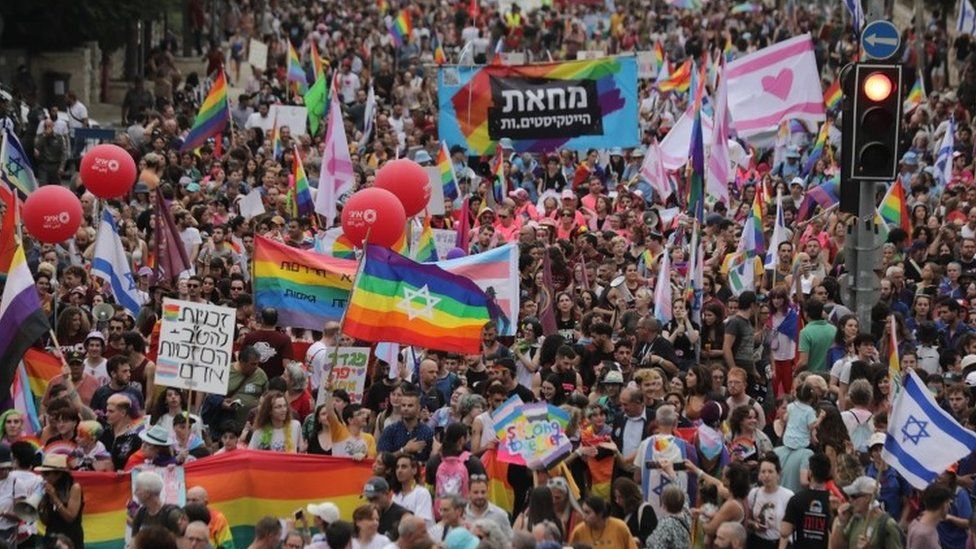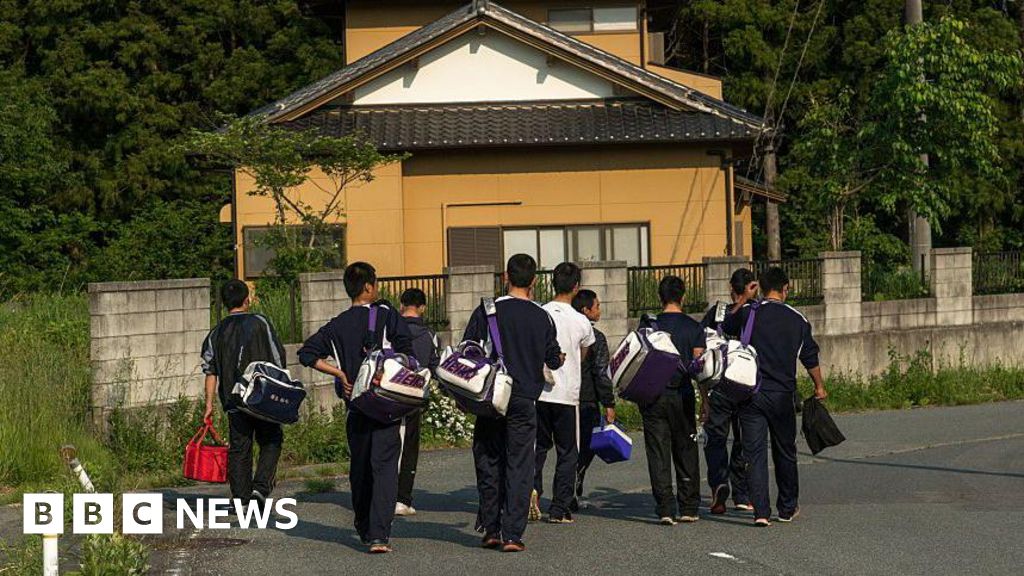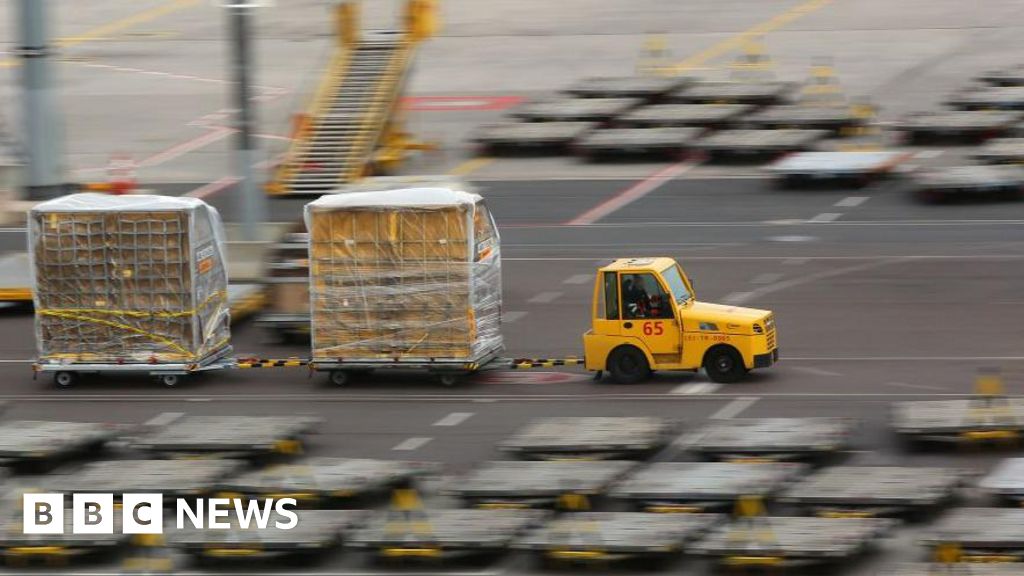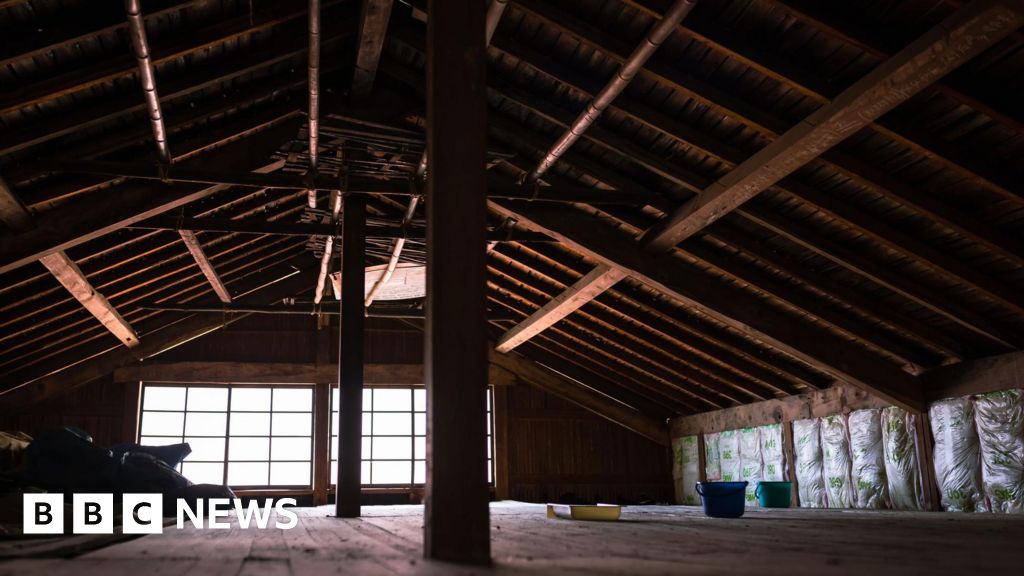ARTICLE AD BOX
 Image source, EPA
Image source, EPA
By Tom Bateman
BBC News, Jerusalem
Israel's far-right Police Minister Itamar Ben-Gvir has been jeered by marchers at Jerusalem Gay Pride.
Thousands turned out for the event despite security fears over online threats and counter-protests.
The march was the first since the election of a hardline religious-nationalist government, including openly homophobic senior ministers.
Tensions are always high after an ultra-Orthodox Jewish extremist murdered a teenage participant in 2015.
Marchers waved huge rainbow and Israeli flags and banners that accused far-right ministers of trying to push them "back in the closet".
Mr Ben-Gvir, who as National Security minister was responsible for securing the march, has a long track-record of aggressively homophobic positions and once attended a so-called "beast parade" rejecting LGBTQ rights.
The climate surrounding the event has thrown a fresh spotlight on the deepening fault lines in Israeli society, where secular Jews have long championed the country's open culture of LGBTQ rights, but where political and demographic shifts are giving unprecedented power to the nationalist and ultra-Orthodox right-wing. The schism is sharply felt in Jerusalem, known for its conservative and religious populations.
Police arrested three people over threats made in the run-up to the event, while an online watchdog reported a spike in homophobic hate speech.
Far-right Telegram and WhatsApp groups published "violent and hateful messages" throughout the week, according to FakeReporter, which monitors online extremism. It said that Lehava, a far-right group, referred to march as the "abomination parade" and called for protests accompanied by a message stating that it would be a "deadly Thursday".
The event was sealed by protective barricades while the route was patrolled by hundreds of armed police. Organisers reported a record attendance of 30,000 people after warning of a "public climate of danger" for LGBTQ people.
As the rally began, Mr Ben-Gvir - swamped by his armed security team - briefly toured a street running parallel, causing marchers to rush to barricades and shout "shame" at him.
Image source, EPA
Image caption,Mr Ben-Gvir (C) has distanced himself from the anti-LGBTQ beast parades
Asked by the BBC if he was deliberately creating a provocation, Mr Ben-Gvir said: "Perhaps our mere existence is a provocation. For you, that Jews live is a provocation."
Meanwhile, a few dozen ultra-religious and far-right protesters, organised by Lehava, were separated by police from the Gay Pride rally. Banners read: "Don't let them have children" and "Jerusalem is not Sodom", in reference to the biblical city supposedly destroyed by God for the sin of homosexuality.
It comes in a year which has seen an unprecedented clash between secular Israelis and Prime Minister Benjamin Netanyahu's government, culminating in weekly protests against the coalition's now-delayed plans to strip powers from the Supreme Court.
Mr Netanyahu has rejected claims his coalition would erode LGBTQ rights. He tweeted during the event: "I am proud that Israel is one of the most open countries in the world in relation to the gay community and that the discourse in it has become more accepting and respectful every year."
Gay Pride marcher Elisa Gilman stood with a sign offering "free hugs" to younger participants who "haven't had a hug from a parent for a while" due to their sexuality.
She told the BBC a lot of gay people were "worried" by the current coalition.
"Many have said 'I will be here this year because of that - I cannot allow who is in government to affect the fact that this is who I am and this is my life'," said Ms Gilman who described herself as an "ally" to the LGBTQ community.
Another marcher, Yuval from Jerusalem, who declined to give his surname, told the BBC: "We're here today to say that we are here to stay and that we will not give up."
"Our government is the most homophobic and transphobic it has ever been. The minister of police who is here supposedly protecting us - until last year he came here to protest against us," he said.
In 2006, Mr Ben-Gvir attended a so-called beast parade against Gay Pride, in which religious activists led goats and donkeys through the streets and hoisted banners calling LGBTQ people "impure". Two years later, he was photographed kicking a trans woman at Gay Pride in Tel Aviv. He later claimed it was in self-defence.
Mr Ben-Gvir has since distanced himself from the beast parade and reportedly described LGBTQ people as his "brothers and sisters".
In the run-up to this week's event he toured police headquarters saying the marchers must be kept safe, but that those opposing it must also be allowed to protest.
Earlier, the Islamist militant group Hamas had also denounced the parade as "provocative" and called on Palestinians to confront it.

 1 year ago
44
1 year ago
44








 English (US)
English (US)